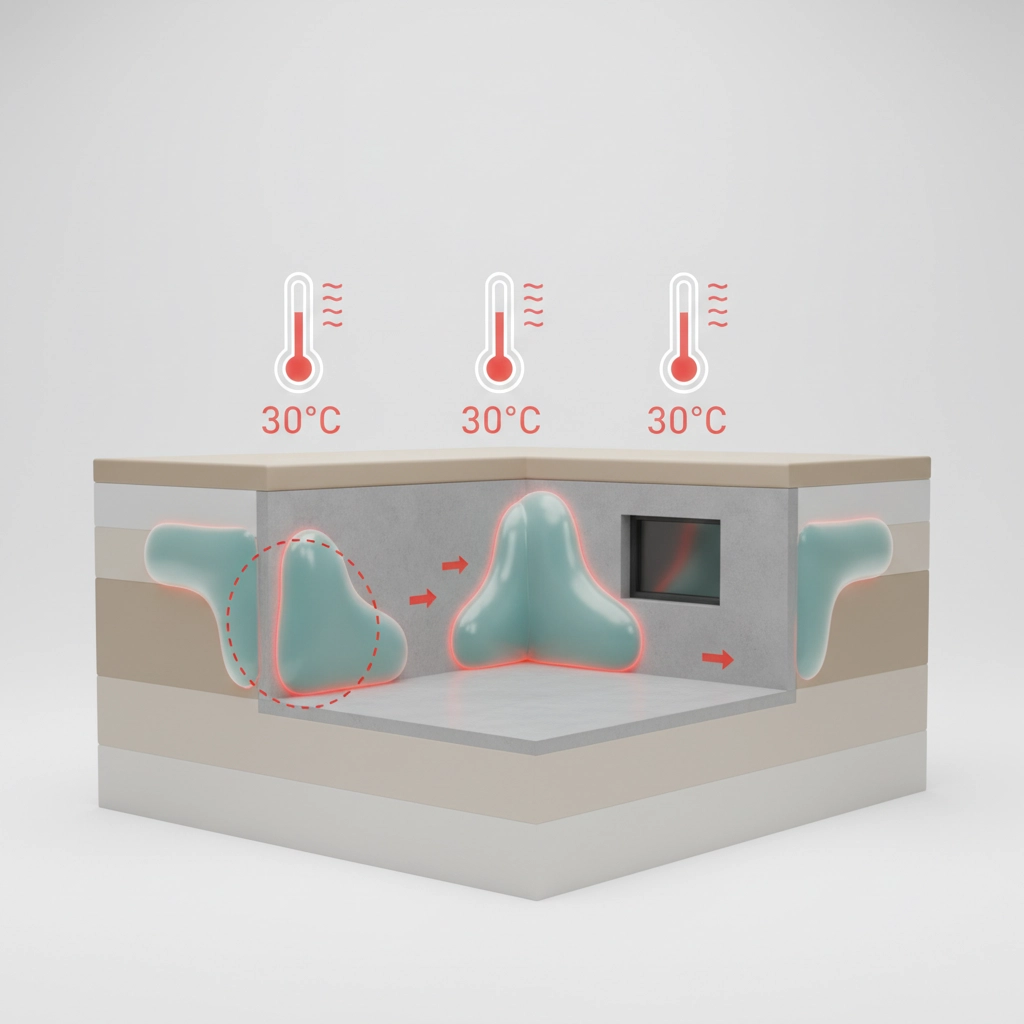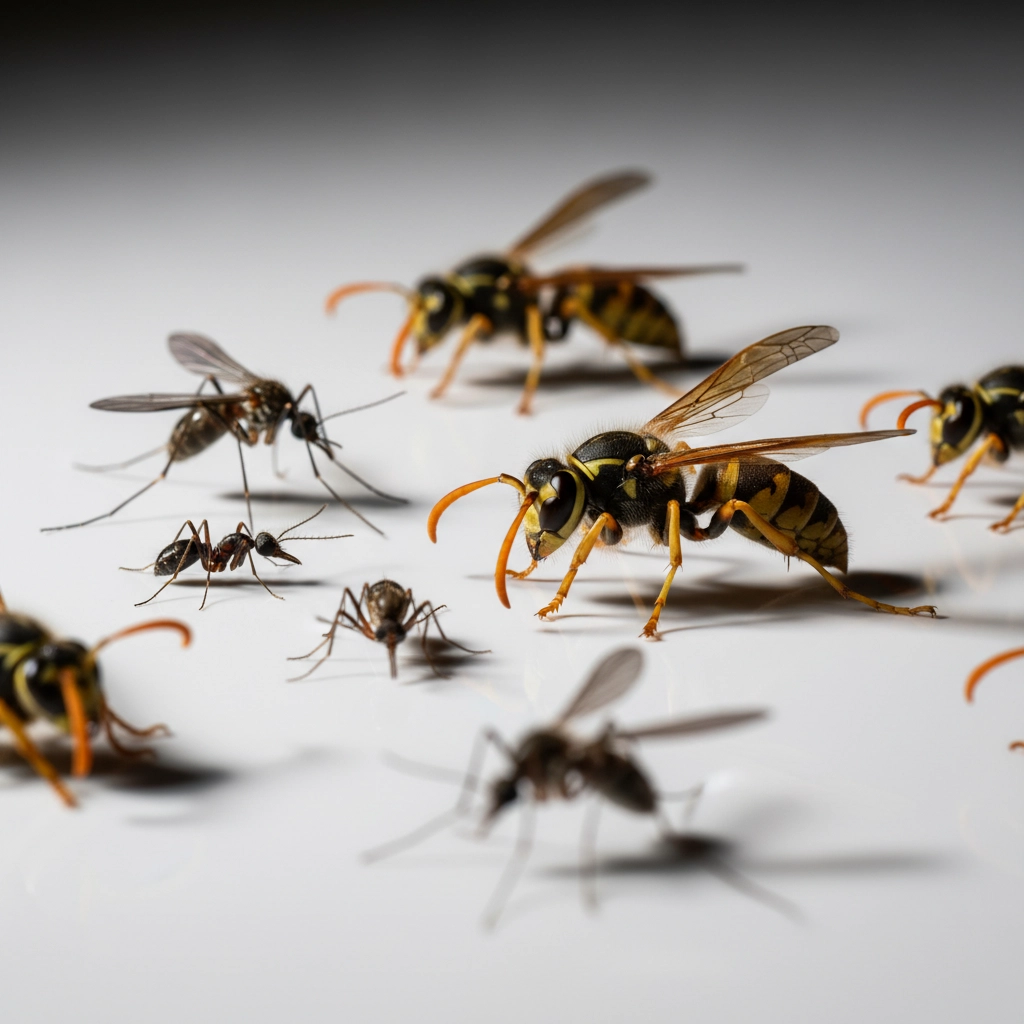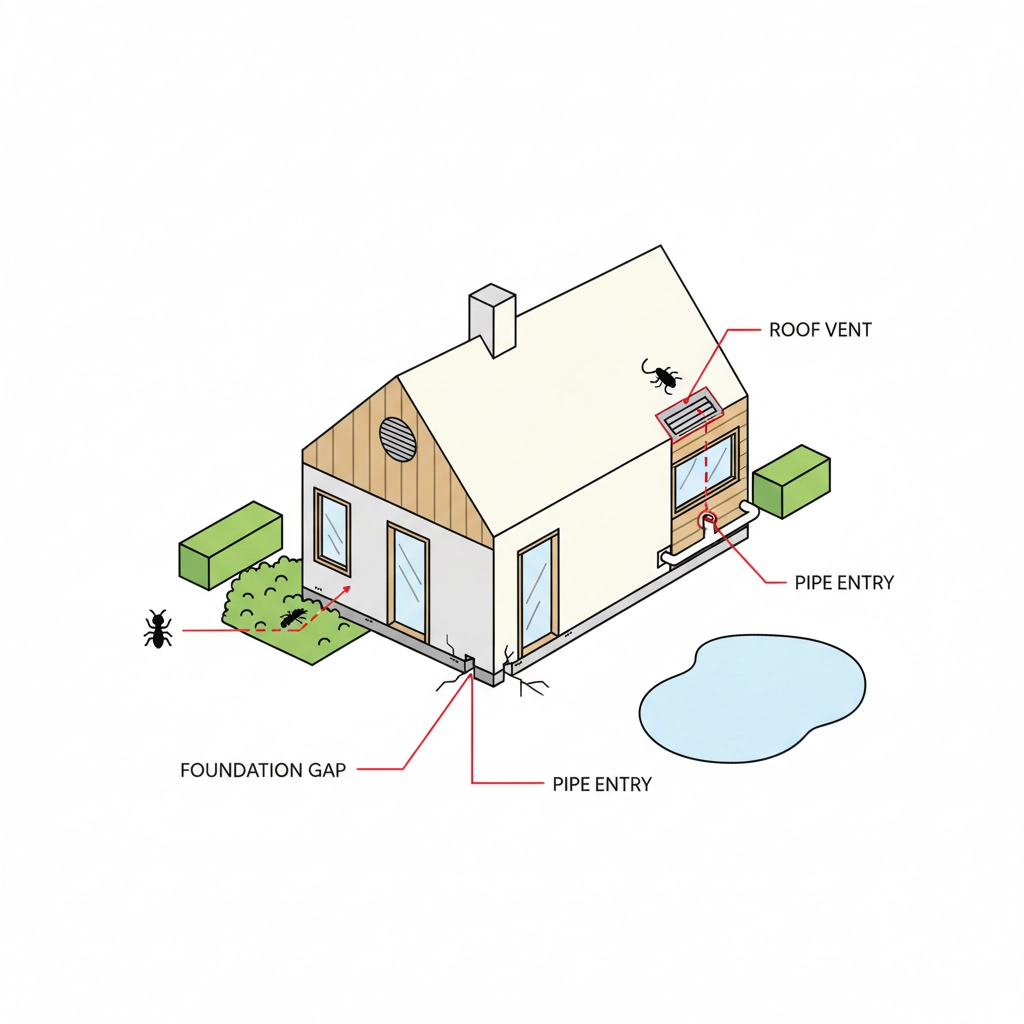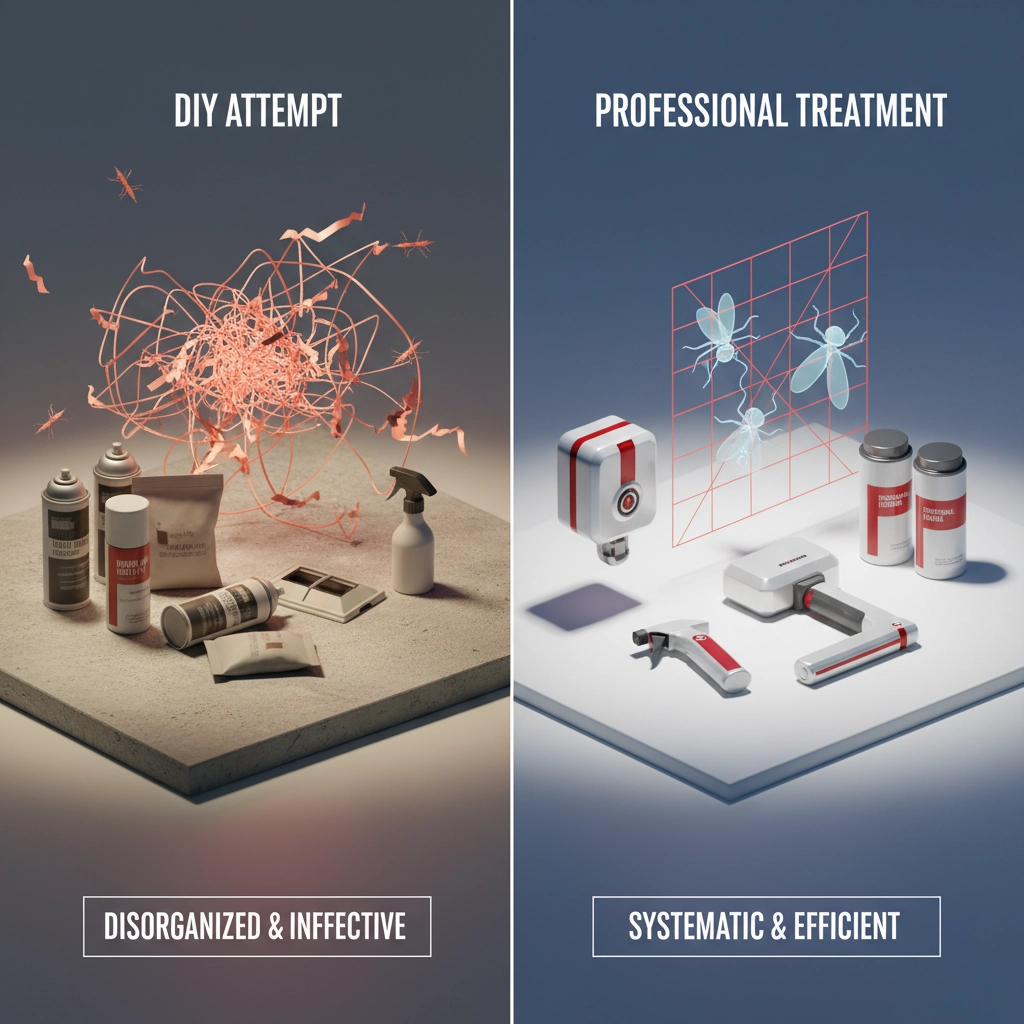Why Pest Seasons Are Lasting Longer in 2025 (And What Cottage Owners Need to Know)
- Targeted Wildlife and Pest Solutions

- Sep 28, 2025
- 5 min read
If you've noticed wasps buzzing around your property well into October, or spotted mice activity when you expected them to be dormant, you're not imagining things. Pest seasons in 2025 are extending far beyond their traditional timeframes, creating unprecedented challenges for property owners across Ontario.
The National Pest Management Association's Bug Barometer forecast confirms what many cottage owners have experienced firsthand: milder-than-normal temperatures are delaying the first freeze and allowing pests to remain active deep into fall and winter months. This shift fundamentally changes how you need to approach pest management on your property.
The Science Behind Extended Pest Activity
Climate change serves as the primary driver behind these longer pest seasons. Rising environmental temperatures provide insects with the external heat sources they need to thrive, enabling them to reproduce at significantly faster rates than in previous years.
When temperatures remain consistently warm, pest life cycles accelerate. A single generation of insects that previously took weeks to develop now completes its cycle in days. This acceleration means exponentially larger pest populations by late summer, with activity continuing well past the traditional first frost date.

Shifting weather patterns have disrupted seasonal cycles across the region. Areas experiencing unusual winter conditions: whether exceptionally dry or wet: create stress conditions that drive pests to seek shelter in human structures. When spring arrives, these disrupted patterns mean pest activity starts differently and extends longer into the year.
Changes in rainfall patterns compound the problem. Regions experiencing intense drought followed by flooding cycles create stressed vegetation that becomes more vulnerable to pest insects. Plants under drought stress decrease their natural chemical defense mechanisms, essentially rolling out the welcome mat for insect invaders.
Which Pests Are Staying Active Longer
Several pest species particularly benefit from these extended seasons, creating ongoing challenges for cottage owners who traditionally expected relief after the first frost.
Mosquitoes, ants, and ticks continue thriving when colder temperatures are delayed. This extended activity increases your risk of encountering disease vectors like West Nile virus and tick-borne illnesses including Lyme disease, babesiosis, and alpha-gal syndrome. The traditional "mosquito season" now stretches well into November in many areas.
Stinging insects like wasps and hornets maintain their aggressive late-season behavior longer. As their natural food sources dwindle, they become increasingly desperate and willing to venture closer to human activity. This creates safety concerns for cottage owners performing fall maintenance tasks.
Cockroach populations are experiencing significant increases across multiple regions, thriving in the moist, warm environments created by shifting weather patterns. These resilient pests establish themselves quickly and prove difficult to eliminate once entrenched.

Rodents present perhaps the greatest concern for cottage owners. When colder weather does eventually arrive, it pushes disease-carrying mice and rats indoors. These pests carry over 35 diseases, including hantavirus, leptospirosis, and plague. Their extended outdoor activity period gives them more opportunities to identify and exploit entry points into your cottage.
Unique Challenges for Cottage Owners
Cottage properties face distinct vulnerabilities during extended pest seasons. Seasonal occupancy patterns create ideal conditions for pest establishment, as properties often remain unoccupied for weeks at a time.
Your cottage's irregular heating and ventilation schedule contributes to humidity issues that many problematic pests find attractive. Without consistent climate control, moisture accumulates in basements, crawl spaces, and storage areas, creating perfect breeding conditions for insects and attracting rodents seeking water sources.
The rural or semi-rural location of most cottages means greater exposure to wildlife and insects. Extended pest seasons bring these populations closer to your property for longer periods. Natural barriers that typically discourage pest movement: like frozen ground or dormant vegetation: remain absent well into winter.
Seasonal maintenance schedules may no longer align with actual pest activity periods. Tasks you traditionally completed by early October now need extending into November or December, requiring adjustments to your property management routine.
Essential Prevention Strategies for Extended Seasons
Adapting your pest management approach requires shifting from seasonal to year-round vigilance. Traditional strategies that worked when pest activity reliably declined after the first frost no longer provide adequate protection.
Structural Maintenance becomes critical during these extended active periods. Inspect your cottage's exterior monthly rather than just during opening and closing. Seal gaps around utility penetrations, repair damaged screens, and ensure door sweeps remain intact. Pests have more time to find and exploit entry points when seasons extend.

Moisture Control requires constant attention. Run dehumidifiers during extended warm periods, ensure proper ventilation in basements and crawl spaces, and address any water intrusion issues immediately. Many of the pests thriving in extended seasons depend on moisture for reproduction.
Landscape Management needs adjustment for longer active periods. Keep vegetation trimmed away from your cottage's foundation throughout the extended season. Remove fallen fruit, clear debris that provides shelter, and maintain proper drainage around your property.
Food Source Elimination remains crucial longer into the year. Secure garbage in sealed containers, clean outdoor grills thoroughly after each use, and remove pet food from accessible areas. Extended pest seasons mean maintaining these practices well into winter months.
When Professional Intervention Becomes Necessary
Extended pest seasons often overwhelm traditional DIY approaches. Pest populations that have months of additional reproduction time frequently exceed what homeowner-level treatments can effectively manage.
Professional intervention becomes essential when you observe increasing pest activity despite your prevention efforts. If you're seeing more pests in November than you typically encounter in August, the population has likely established itself beyond what retail products can eliminate.

Cottage properties present unique assessment challenges that benefit from professional expertise. Pest management professionals understand how extended seasons affect different species and can identify vulnerability points specific to seasonal properties.
Professional treatments also provide longer-lasting results during extended active periods. While retail products may offer temporary relief, professional-grade materials and application techniques provide protection that spans the entire extended season.
Protecting Your Investment Through Extended Seasons
Extended pest seasons in 2025 represent a fundamental shift in how you need to approach cottage property management. The traditional spring opening and fall closing routine no longer provides adequate protection against pest establishment.
Successful pest management during extended seasons requires continuous vigilance, adapted maintenance schedules, and recognition that professional intervention often proves more cost-effective than repeated DIY attempts.

Your cottage represents a significant investment that deserves protection from the increasing pest pressures created by climate-driven seasonal changes. Understanding these new patterns and adapting your management approach ensures your property remains comfortable and protected throughout these extended active periods.
Don't let extended pest seasons catch you unprepared. Contact Targeted Wildlife and Pest Solutions to develop a comprehensive management strategy that addresses the unique challenges of longer pest activity periods. Our team understands how climate changes affect pest behavior and can help protect your cottage investment through these evolving seasonal patterns.
Comments